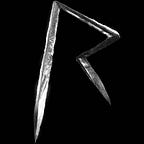Interview Prep #2 — How to define a metric for meaningful social interactions?
Product Sense questions are very open-ended and hard to prepare — that’s why I started this series of interview preps to learn from data scientists and product managers on how to form a structured, hypothesis-driven and exhaustive answer to these questions.
For Day 2 of this series, I will work on another Facebook interview question shared on IGotAnOffer:
After gathering feedback from experienced data science professionals and analyzing stats of first blog, I decide to slightly adjust the structure of future blogs — instead of simulating a dialogue, I will share only a synopsis for better interview prep results and better reading experience.
My Answer:
Ask clarifying question:
Is there already consensus on which interactions on the news feed are meaningful? If so, which are the interactions?
Define meaningful social interactions:
Suppose the interviewer asks you to define these interaction:
Start with goal of Facebook — Facebook’s mission is to bring the world together and build communities, so Facebook cares a lot about user engagement. Therefore, to define meaningful interactions on the news feed, we should look for interactions that can drive user engagement.
There are 3 major types of interactions on the news feed: comment, like & share. All of them are meaningful interactions that can motivate more high-quality posts and further interactions. Thus, we can use a weighted average of these 3 actions to measure meaningful social interactions on Facebook.
How to assign the weights:
All 3 types of interactions are meaningful, but they are not equal. There are 3 ways we can determine the weights:
- Common sense
- Retrospective analysis
- Survey
Common sense:
First of all, we can use common sense and intuition to determine which type of interactions are more meaningful.
For example, ‘like’ is a meaningful interaction that shows viewer’s appreciation for the post. It can motivate creators to post more contents because they feel recognized by viewers. Viewers liking posts show that they enjoy what they just viewed, thus they are more likely to spend more time on Facebook news feed.
‘Share’ is slightly more meaningful than ‘like’ — not only the viewer enjoys the content, they also want to share it with friends and family, which will lead to more impressions and interactions on the content shared.
‘Comment’ is even more powerful. Viewer commenting on a post generally implies higher extent of interest than like & share, and it would incentivize further interactions immediately(e.g. comment back, like on comment, friend request, etc).
In conclusion, based on common sense, I value comment>share>like. We can assign weights accordingly.
Retrospective analysis:
Another way is to perform retropective analysis on our historical data and logs to find how these types of interactions correlate with our ultimate goal — engagement. We can use a more high-level metric that measures user engagement on Facebook(e.g. # of sessions per day per user) as the response variable to build a regression model. The weights on independent variables can be used as weights of our metric.
Survey:
Finally, we can send out surveys to users to ask for their opinions — which type of interaction is more meaningful to you? Is comment from a stranger or a close friend more meaningful?
Ricky Zhang
M.S. Data Science @ USFCA. Graduating in August.
- Data Scientists & Product Managers: if you come across this blog, please spend a minute to leave a comment on how I could possibly improve my answer. If you have any other general interview tips, please feel free to share too. I’d sincerely appreciate it!
- Hiring Managers: if you have Data Scientist, Analytics / Product Analyst / Business Intelligence Analyst opening on your team, let’s connect on LinkedIn or send me an email at rzhang67@usfca.edu . I appreciate your help!
